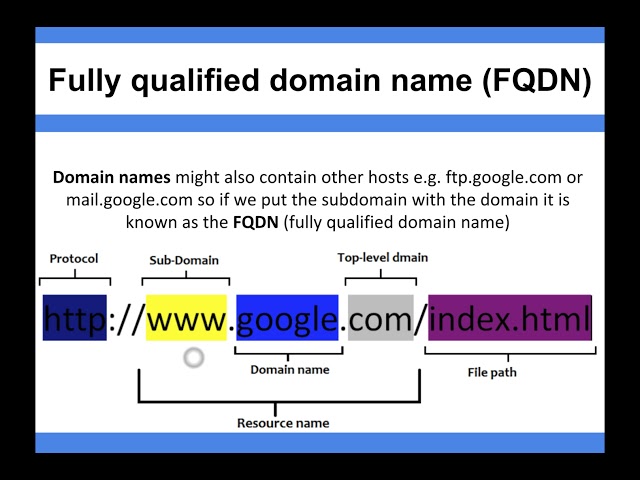Domain Name vs. FQDN: What’s the Difference?
When it comes to the world of technology and the internet, there are plenty of terms that can be confusing for the average person. Two such terms that are often used interchangeably but have distinct meanings are domain name and Fully Qualified Domain Name (FQDN). In this article, we will explore the differences between these two concepts and why they are important in the world of web hosting and domain registration.
What is a Domain Name?
Let’s start with the basics. A domain name is a user-friendly way of identifying a website on the internet. It typically consists of two parts: the top-level domain (TLD) and the second-level domain (SLD). For example, in the domain name google.com, “.com” is the TLD, and “google” is the SLD. Domain names are used to make it easier for people to remember and access websites without having to remember the website’s IP address.
What is an FQDN?
An FQDN, on the other hand, is a domain name that specifies the exact location of a resource on the internet. It includes the hostname, domain name, and the top-level domain. For example, the FQDN for google.com might be www.google.com. In this case, “www” is the hostname, “google” is the domain name, and “com” is the top-level domain.
Key Differences between Domain Name and FQDN
- Domain names are used for human-friendly website identification, while FQDNs are used for machine-readable website identification.
- Domain names typically consist of a TLD and an SLD, while FQDNs consist of a hostname, domain name, and TLD.
- Domain names are easier to remember and type, while FQDNs provide a more precise location for web resources.
- Domain names are what users type into their browsers to access websites, while FQDNs are used by DNS servers to locate web resources.
Why Do Domain Names and FQDNs Matter?
Understanding the difference between domain names and FQDNs is essential for anyone involved in web development, hosting, or DNS management. Using the correct terminology and understanding how each concept works can help ensure that websites are properly configured and accessible to users.
For website owners, choosing the right domain name is crucial for building a strong online presence and attracting visitors to their site. A memorable domain name can help users find a website more easily and can also improve search engine rankings.
On the other hand, understanding FQDNs is important for network administrators and IT professionals who need to ensure that their systems can accurately locate and communicate with web resources. By using FQDNs, administrators can avoid common DNS issues and ensure that their networks operate smoothly.
Conclusion
While domain names and FQDNs are both essential components of the internet, they serve different purposes and are used in different ways. By understanding the distinctions between these two concepts, web developers, network administrators, and website owners can ensure that their online properties are well-maintained and accessible to users.
Whether you are registering a new domain name for your business or troubleshooting DNS issues on your network, knowing the difference between domain names and FQDNs can make a big difference in how you approach these tasks. So the next time you hear someone use these terms interchangeably, you can confidently correct them and explain why they are not the same!
